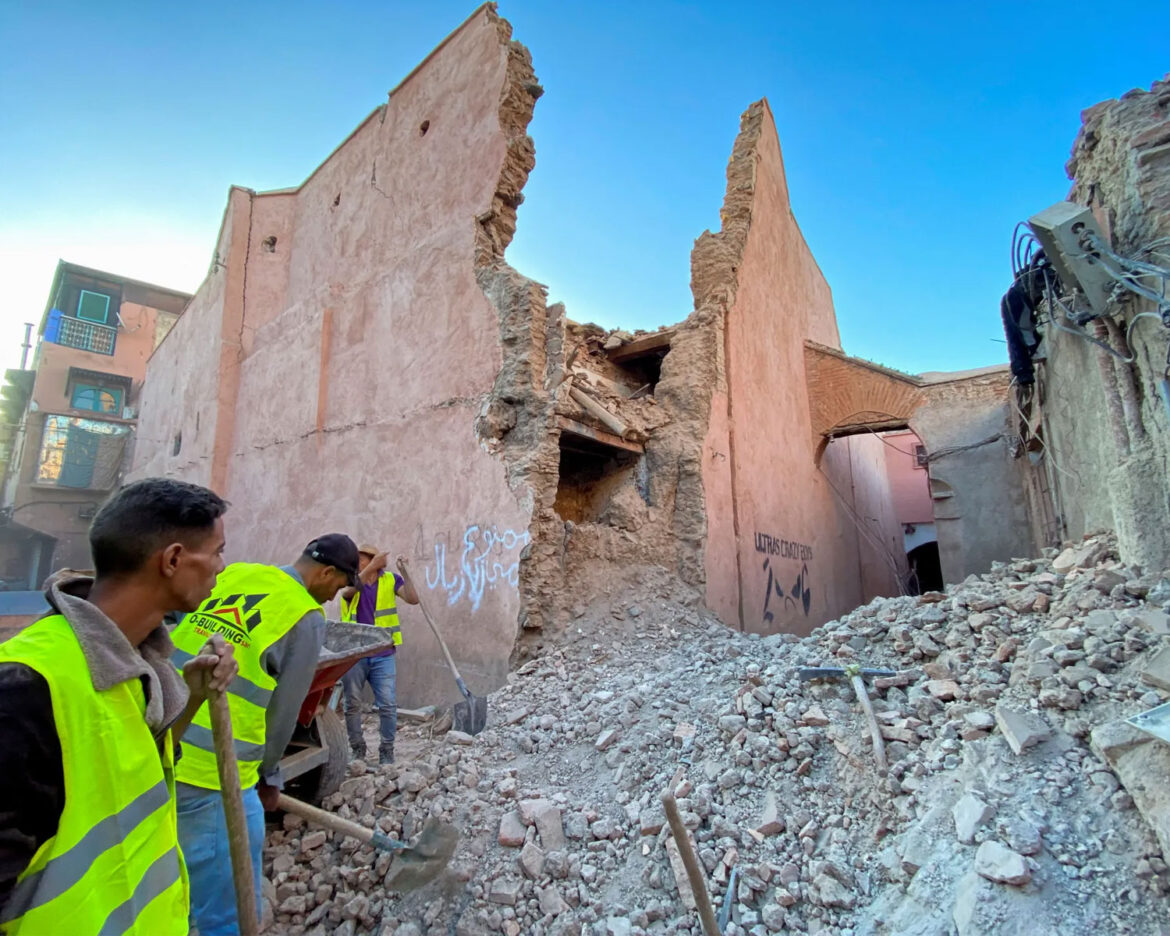Moroccans were rattled once again on Sunday as a magnitude 3.9 aftershock struck the country, further intensifying the already dire situation caused by a devastating earthquake that hit the region on Friday night. The aftershock, which added to the woes of rescue workers, came as they desperately searched for survivors amid the rubble left behind by the powerful quake.
The initial earthquake, with a magnitude of 6.8, struck Morocco on Friday night, making it the most potent seismic event the country has experienced in a century. The United Nations estimates that around 300,000 people have been affected by the disaster, with the death toll exceeding 2,100 people.
Rescue efforts have been hampered by the scale of the destruction, and there have been reports on social networks of frustration among Moroccans who believe that the government is not permitting enough foreign rescue workers to assist.
Arnaud Fraisse, the founder of Rescuers Without Borders, expressed the urgency of the situation, saying, “There are people dying under the rubble, and we cannot do anything to save them.” His team, along with others, has been waiting for approval to enter Morocco and join the rescue operation.
U.S. Secretary of State Antony Blinken pledged assistance to Morocco in a CNN interview, saying, “We’re ready to go,” underscoring the international solidarity in the face of this crisis.
The devastation from the earthquake extended to the High Atlas Mountains, where houses made of mud brick, stone, and rough wood were severely damaged. Mosques and historical landmarks, such as the old city of Marrakech, were also affected.
According to the interior ministry, 2,122 people have lost their lives, and 2,421 have been injured, with 1,404 in critical condition. The epicenter of the earthquake was located 72 kilometers southwest of Marrakech.
Many displaced by the disaster have been forced to sleep in the streets of Marrakech or makeshift shelters in hard-hit Atlas Mountain towns like Moulay Brahim.
King Mohammed VI declared three days of national mourning, during which flags will be lowered across the country. The army has been mobilized to support search and rescue operations, and the king ordered the provision of water, food rations, and shelter to those who have lost their homes.
Rescue teams have been working tirelessly, sometimes using only their bare hands, to dig through the rubble in villages like Amizmiz near the earthquake’s epicenter. In some cases, entire families have tragically perished.
Structural and earthquake engineering expert Mohammad Kashani commented on the situation, noting the prevalence of old and historical buildings in the affected area, many of which were made of masonry. He observed that the collapsed reinforced concrete structures were either old or substandard, further highlighting the challenges faced by rescue teams.
As Morocco grapples with the aftermath of this devastating earthquake, the international community continues to offer support and assistance to alleviate the suffering of those affected by this tragic disaster.
This news report is based on information from The Associated Press and Reuters.



